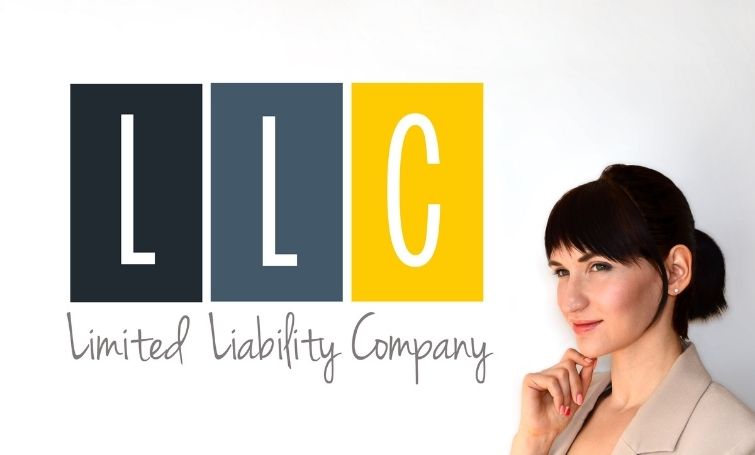As an entrepreneur venturing into business and looking for ways to protect yourself from business-related debt, you could consider forming a Limited Liability Company (LLC). It’s a business structure that primarily protects the owners from having to pay business-related debts with their personal assets.
For this and several other reasons, LLCs are gaining fame among medium and large enterprises. With that in mind, here are eight things to know before starting an LLC:

- You Must File The Articles Of Organization
Every state has specific guidelines for forming an LLC. In line with this, you have to fill out a state-specific form when starting your company. This form is referred to as:
- Articles of Organization
- Certificate of Formation, or
- Certificate of Organization
Usually, you have to include basic company information, like:
- The business name
- Location
- Your LLC’s management structure
- Your registered agent’s name and address
- Start date for the LLC
- Date of filing
- List of original members
- Other relevant information.
Once you have all the details in place, check your state’s filing fee. Some states charge as high as USD$500, while others are as low as USD$50.
For more comprehensive state-specific guidelines on filing the articles of organization, you can visit informative sources, such as Start Filing. You can also seek help from such sites if the filing process seems challenging. They’ll help you submit the form online or by mail and ensure you get your document notarized.
- Your Company Name Must Be Unique
Choosing a unique name is a crucial step to branding your business, and this goes a long way to influencing customers to make purchases. The name you select for your company must not be a duplicate of any other existing company or business. So, you’d want to ensure you pick a unique one. This will help turn your business into a brand.
Also, depending on your state, you may want to look into the LLC naming guidelines to see the requirements you have to adhere to. Here are more factors you could consider when selecting a name:
- Make it simple to ensure the public can easily remember it
- It should be easy to pronounce
- It should connect with your brand objectives
- Stay away from trademarked names to avoid lawsuits
- Choose a name that’s not yet highly competitive in regards to Search Engine Optimization
If you’ve also thought of a name and haven’t decided to form the LLC yet, you may pay to have it reserved for you. Finally, remember to include the LLC tag at the end of your business name when thinking of the company name.
- You May Need To Employ A Registered Agent For Your LLC
A registered agent is a person or firm that you appoint to correspond with the government on your behalf. For instance, the state may want to remind your company about an unfulfilled legal obligation. In this case, the concerned authorities send the notice to the registered agent, who’ll then inform the company’s managers.
Using a registered agent makes the LLC formation process easier for you. They also save you a great deal of time and can advise you on any legal matters that arise. Thus, you’d want to hire an experienced one with vast knowledge of LLC formation in your state. For this, you’ll have to pay a fee for their professional services.
- It’s Crucial To Have An Operating Agreement
An LLC operating agreement is a document that outlines operational guidelines to be followed by the members. For instance, you may detail each member’s financial obligations, how to divide profits, or the decision-making hierarchy. You may consider getting the help of a lawyer to assist you with preparing this since it’s a binding agreement. By having an operating agreement may not be compulsory in your state, you should consider obtaining one nevertheless.
Your LLC will be forced to operate under the state’s laws without this document. This isn’t always ideal, given that your members’ demands may be unique. Also, if your LLC has more than one partner, you should have it to ensure everyone is okay with their rights and responsibilities.
- LLCs Have Various Tax Options
The amount of income tax an LLC pays depends primarily on the ownership structure. Here’s a breakdown of the different categories:
- Single Ownership LLCs: These are taxed similarly to sole proprietorships. In essence, the owner is taxed based on the net annual profits as specified in Schedule C of the Internal Revenue Service.
- Multi-owned LLCs: These pay taxes as partnerships, according to IRS’s Schedule K-1. Typically, each partner receives a tax form based on their profit share.
- As a corporation: An LLC can be taxed as a corporation, wherein they have to file a corporate income tax return.
- As an S corporation: This entails reporting the company’s income through personal tax returns to avoid double taxation.
You may select the option that aligns with your type of LLC and has the most merits.
- You May Need A Federal License In Addition To A State License
Generally, LLCs aren’t recognized on a federal level but rather on the state level. That means you must get a state license in the first place. But on top of that, you may need a federal license, depending on what goods and services you deal with.
The following industries particularly require federal licenses:
- Firearms
- Animal husbandry
- Mining
- Nuclear energy exploration
- Communications
- Air and water transportation
- Crop farming
- Getting an EIN Is A Must For Multi-Member LLCs
Every multi-member LLCs require an Employer Identification Number (EIN). On the contrary, it’s not necessary to have an EIN if you form and operate your LLC alone. However, it’s still beneficial to have this number.
For one, most banks require an LLC to have it to open a bank account. Also, having an EIN makes it easy to do business with contractors, suppliers, and other business partners, as it portrays you as a serious entrepreneur.
Conclusion
Forming an LLC involves quite a lot of paperwork and legalities. Before starting one, ensure you’ve fully understood all the requirements. You can handle the registration process if you have the time, expertise, and mental stamina.
However, if the process seems challenging for you, or your busy schedule doesn’t allow it, consider enlisting the help of professionals to do the paperwork on your behalf. The ultimate goal is to ensure you comply with all legal requirements.



























